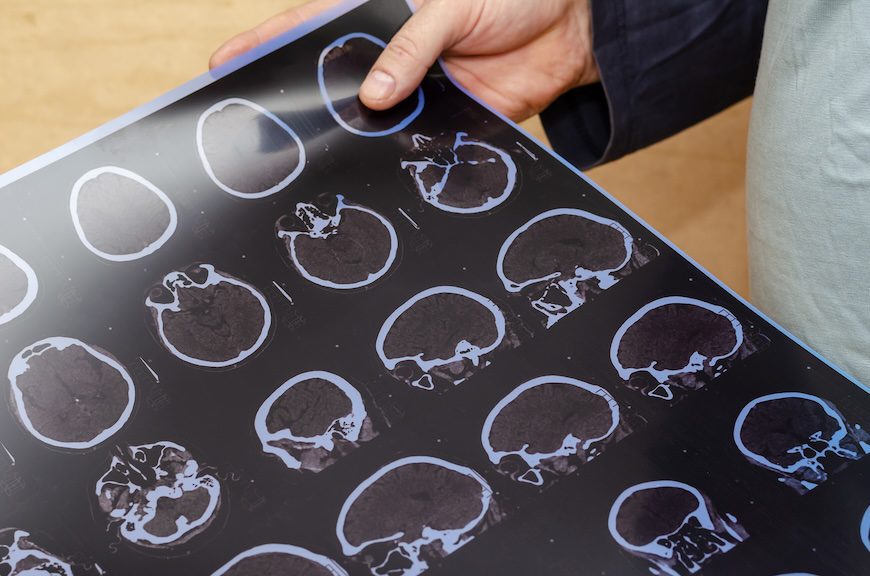The U.S. Food and Drug Administration (FDA) has approved Eli Lilly’s new Alzheimer’s treatment that’s proven effective in slowing memory loss of those in the early stages of the disease. The drug, donanemab-azbt, which the pharmaceutical company is marketing under the brand name Kisunla, is a monthly monoclonal antibody injection.
“The trial data demonstrated, convincingly, that Kisunla reduces the rate of cognitive and functional decline in patients in the mild cognitive impairment and mild dementia stages of Alzheimer’s disease,” Director of the Office of Neuroscience in the FDA’s Center for Drug Evaluation and Research Teresa Buracchio said in an announcement.
It’s the latest Alzheimer’s treatment to earn FDA approval. And it’s only the second to show clear evidence of delaying cognitive decline. The U.S. regulator signed off on Japanese drugmaker Eisai’s Leqembi in early 2023.
Phase 3 Study Shows Promise
Results of the most recent trial showed that patients in the least advanced stages of the disease benefited the most. Researchers analyzed trial participants in two groups. The first group comprised those less advanced in their disease – with low to medium levels of tau protein. While the second (control) group included the general population, which also included participants with high tau levels.
The Kisunla treatment dramatically hampered the clinical decline in both groups.
“Kisunla demonstrated very meaningful results for people with early symptomatic Alzheimer’s disease, who urgently need effective treatment options,” Lilly Neuroscience President Anne White explained in a press release. “We know these medicines have the greatest potential benefit when people are treated earlier in their disease, and we are working hard in partnership with others to improve detection and diagnosis.”
Patients treated with Kisunla showed a significant deceleration of decline – 35 percent – compared to the placebo. The researchers relied on the integrated Alzheimer’s Disease Rating Scale (iADRS), which measures memory, thinking, and daily functioning.
Among the general population, the response to treatment appeared to be notable at 22 percent. Between the two groups, participants treated with Kisunla “had up to a 39 percent lower risk of progressing to the next clinical stage of disease than those taking placebo.” Overall, Kisunla lowered amyloid plaque buildup on average by:
- 61 percent at six months.
- 80 percent at 12 months.
- And 84 percent at 18 months.
“This approval marks another step forward in evolving the standard of care for people living with Alzheimer’s disease that will ultimately include an arsenal of novel treatments, providing much-needed hope to the Alzheimer’s community,” Howard Fillit, M.D., Co-Founder and Chief Science Officer at the Alzheimer’s Drug Discovery Foundation (ADDF) said. “As a physician, I am encouraged by the potential to stop treatment, which could reduce out-of-pocket costs and infusion burden for eligible patients.”
Potential Side Effects
But no treatment is without drawbacks. According to Eli Lilly, Kisunla can cause amyloid-related imaging abnormalities (ARIA). It’s a potential side effect of amyloid plaque-targeting therapies.
Medical personnel can identify the irregularities with magnetic resonance imaging (MRI) scans. They also can present as temporary swelling in areas of the brain or as small spots of bleeding in or on the surface. Infrequently, larger areas of bleeding in the brain can occur, the company conceded.
Finally, Kisunla can also cause a handful of allergic reactions, which typically emerge during the injection or within 30 minutes.
Further Reading
Researchers Discover Waste Disposal System in the Brain



